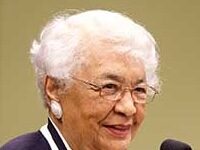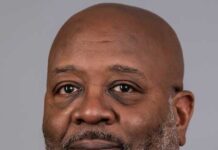 Johnson C. Smith University, the historically Black educational institution in Charlotte, North Carolina, has announced the establishment of the University College. The new University College is a comprehensive new program designed to help connect new traditional college students to the university community.
Johnson C. Smith University, the historically Black educational institution in Charlotte, North Carolina, has announced the establishment of the University College. The new University College is a comprehensive new program designed to help connect new traditional college students to the university community.
The University College aims to develop new students’ communication, reasoning, leadership, and career skills. It will also provide advising, counseling, tutoring, academic success workshops, and will seek to involve students in extra-curricular activities and community service.
 Ronald L. Carter, president of Johnson C. Smith University, said that “University College offers a broad grouping of inclusive educational opportunities, services and supports for student engagement and success. The faculty and staff in this innovative college do more than offer a ‘one-stop’ service delivery. Rather, they are committed to a comprehensive spectrum of ‘educational care’ that consistently supports students’ growth dimensions in self-concepts, learning, and civic engagement – characteristics that feature graduation.”
Ronald L. Carter, president of Johnson C. Smith University, said that “University College offers a broad grouping of inclusive educational opportunities, services and supports for student engagement and success. The faculty and staff in this innovative college do more than offer a ‘one-stop’ service delivery. Rather, they are committed to a comprehensive spectrum of ‘educational care’ that consistently supports students’ growth dimensions in self-concepts, learning, and civic engagement – characteristics that feature graduation.”











Johnson C. Smith University (JCSU) administrators should be ashamed of themselves for even attempting to make it appear as if the university will be offering some new and innovative under the guise of a “university college”. This clearly shows how JCSU administrators have dutifully failed to provide the appropriate student development and academic nurturing for many of its students. As a result, many JCSU students who initially wanted to complete their respective degree, but, due to lack of appropriate services, ultimately discontinued their studies. In my view, this is a classic example of higher education malfeasance at an HBCU in the 21st century. In fairness to JCSU, one could very easily make similar claims at numerous other HBCUs.
If JCSU truly want to be a model for other universities, they should allow any student who did not complete their degree the opportunity to return and complete their respective degree a discounted rate due to JCSU breach of contract to students it admitted. For those who dissent, I think this would be more economical as compared to former JCSU students launching a class action lawsuit for educational malfeasance.
Absolutely agree. Morgan State wins trophies for ‘failure to educate’ AND overcharge.
Re: Maggie,
I think you woefully misinterpreted my comments concerning Johnson C. Smith University (JCSU). Thereby, I would suggest that you reread my comments and realize that I was not merely singling out JCSU, but, many other HBCUs for their educational malfeasance. Regarding students being “overcharged” at HBCUs, that’s not completely accurate because the price to attend the majority of HBCUs is lower as compared to the majority of HWCUs.